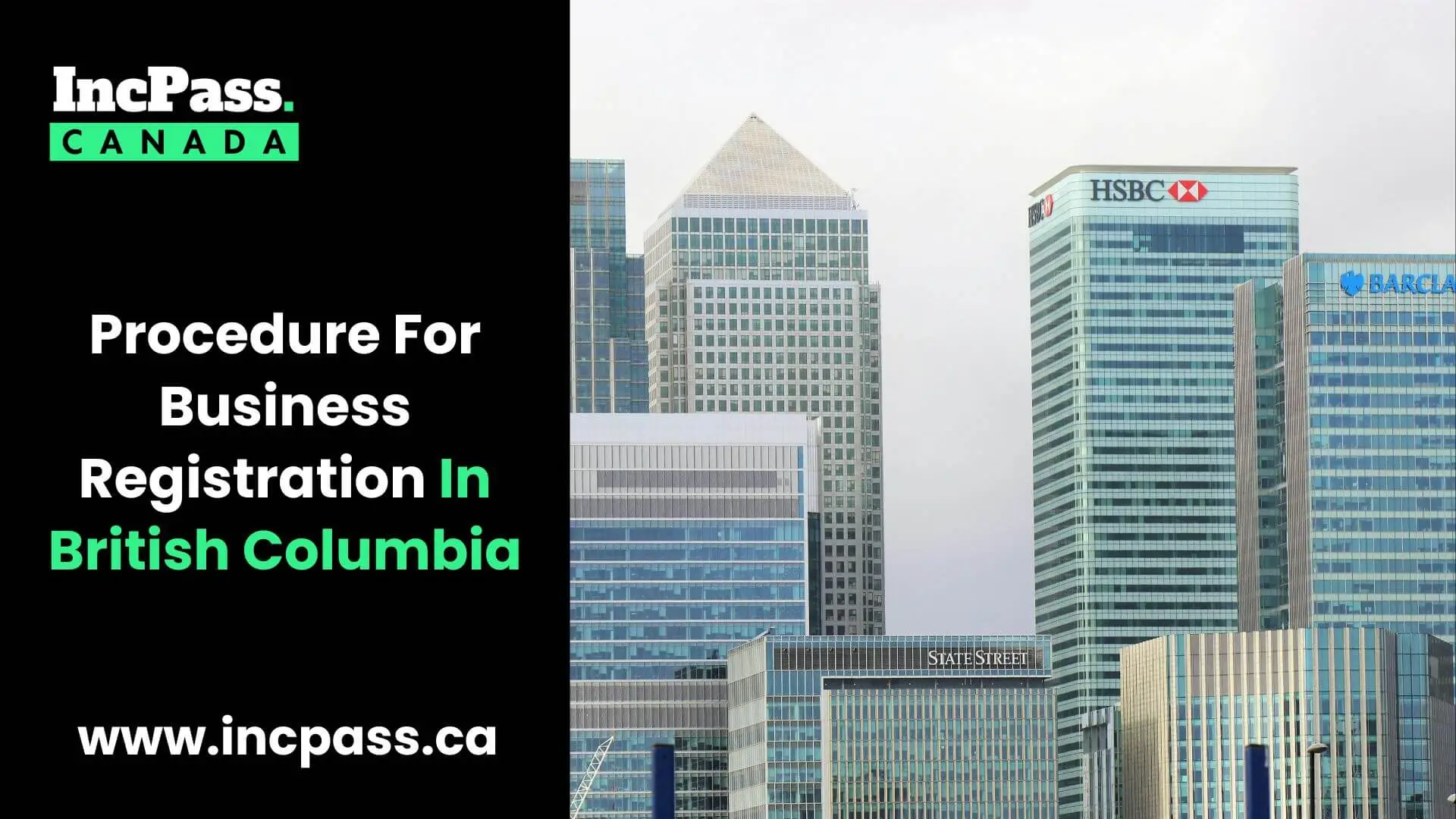British Columbia (BC) provides many opportunities for entrepreneurs to starting their business in British columbia. However, the necessary steps for company formation must be completed before you can offer your services to customers.
This comprehensive guide will walk you through the step-by-step process of registering a business in British Columbia, ensuring that you can focus on building your dream enterprise with confidence.
Step 1: Choosing the Right Business Structure
The first important choice you must make is choosing the right business structure for your endeavour. The most common structures in British Columbia include:
- Sole Proprietorship: A basic organizational form in which the firm owner bears all responsibility for every facet of the enterprise is the sole proprietorship.
- Partnership: A partnership is a form of business entity that is owned and operated by two or more partners who divide the gains and duties of the business among themselves.
- Corporation: A distinct legal body having limited liability for stockholders, as well as its own rights and obligations.
- Limited Liability Partnership (LLP): A limited liability partnership (LLP) is a form of partnership in which each partner’s liability for the deeds of the others is restricted.
The choice of business structure is influenced by a number of factors, including liability concerns, tax implications, and the number of owners.
Step 2: Choose and Enroll Your Firm Name
Once you have decided on your legal entity, the next step is to choose a unique company name. This name must not be misleading or similar to an existing business name in BC. To ensure that your chosen name is available, you can conduct a name search using the BC Corporate Registry’s Name Request Online (NRO) service.
After confirming the availability of your firm name, you must register it. The process involves:
- Submitting a Name Request: Complete a Name Request online via the NRO service. This step involves a non-refundable fee.
- Receiving Approval: Wait for the approval of your business name. This can take up to 10 business days.
- Registering the Name: Once approved, you must register the business name with the BC Corporate Registry.
Step 3: Proceed with the company formation procedure
Following the selection of the corporate structure and company name, you can proceed with the registration process. The process involved may differ based on the chosen structure:
Sole Proprietorship and Partnership
1. Business Name Registration
Although it’s not required, registering your company name can offer legal protection.
2. Business Licenses & Permits
You might need particular licenses or permits from provincial, local, or federal authorities based on the nature of your company’s operations.
Corporation
1. Incorporation
This involves submitting articles of incorporation with the BC Corporate Registry.
2. Naming
Choose a corporate name and complete a name request.
3. Appointing Directors and Officers
Designate individuals to hold these positions.
4. Issuing Shares
Determine the share structure and ownership.
5. Business Licenses and Permits
Obtain necessary permits based on your business operations.
Step 4: Obtain Necessary Permits and Licenses
To conduct business lawfully, you can require a number of licenses and permits, based on your industry and region. Common permits and licenses include:
- Municipal Business License: Issued by the local city or municipality where your business is located.
- Health Permits: Health permits are necessary for firms operating in the food and beverage sector.
- Building Permits: Necessary for any construction or renovation work. Check with your local city hall or municipal office to determine the specific permits and licenses required for your business.
Step 5: Open a Business Bank Account
Separating your personal and business finances is crucial for managing your business effectively. Opening a business bank account helps you:
- Track Income and Expenses: Simplifies bookkeeping and tax filing.
- Build Business Credit: Establishes a credit history for your business.
- Accept Payments: Enables you to accept credit card payments and other forms of payment.
Visit your preferred bank and bring your business registration documents, identification, and any other required information to open an account.
Step 6: Establish Accounting and Record-Keeping Systems
Maintaining accurate records and bookkeeping is crucial to your company’s success. Implementing an effective system helps you:
- Monitor Financial Performance: Monitor earnings, expenses, and profitability.
- Meet Legal Requirements: Ensure compliance with tax laws and other regulations.
- Make Well-Informed Decisions: When making company judgments, consult reliable financial facts.
If you want to manage your accounts, think about adopting accounting software or employing a professional accountant.
Conclusion
The procedure for establishing a business in British Columbia is complex and demands careful thought and attention to detail. Through comprehension of the essential procedures, ranging from selecting your company structure to meeting continuous regulatory requirements, you can position your organisation for prosperity and confidently navigate through the bureaucratic landscape.
Remember, the process of registering a business in BC can be streamlined and expedited with the help of automated tools like Incpass. Incpass is made to help you through the full registration procedure, making sure you do all the tasks and fulfil all the requirements for compliance. With Incpass, you can focus on building your business while the platform handles administrative tasks, giving you peace of mind and allowing you to devote your time and energy to your core operations.
FAQs
Do I need a business license to operate in British Columbia?
While optional in some cases, having a business license is often required, especially for specific industries or municipalities.
What is the distinction between a sole proprietorship and a partnership?
A sole proprietorship is owned and operated by just one person, while a partnership involves two or more owners sharing profits and liabilities.
How much time does it take to register a corporation in BC?
The processing time for setting up a firm in British Columbia typically ranges from a few days to a few weeks.
How do I reserve a company name in British Columbia?
You can submit an application for up to three name choices on a single application through the BC Registries and Online Services website or in person at a Service BC Centre. Make sure the name is available and does not violate any already-existing trademarks or intellectual property by carefully examining your possibilities.








